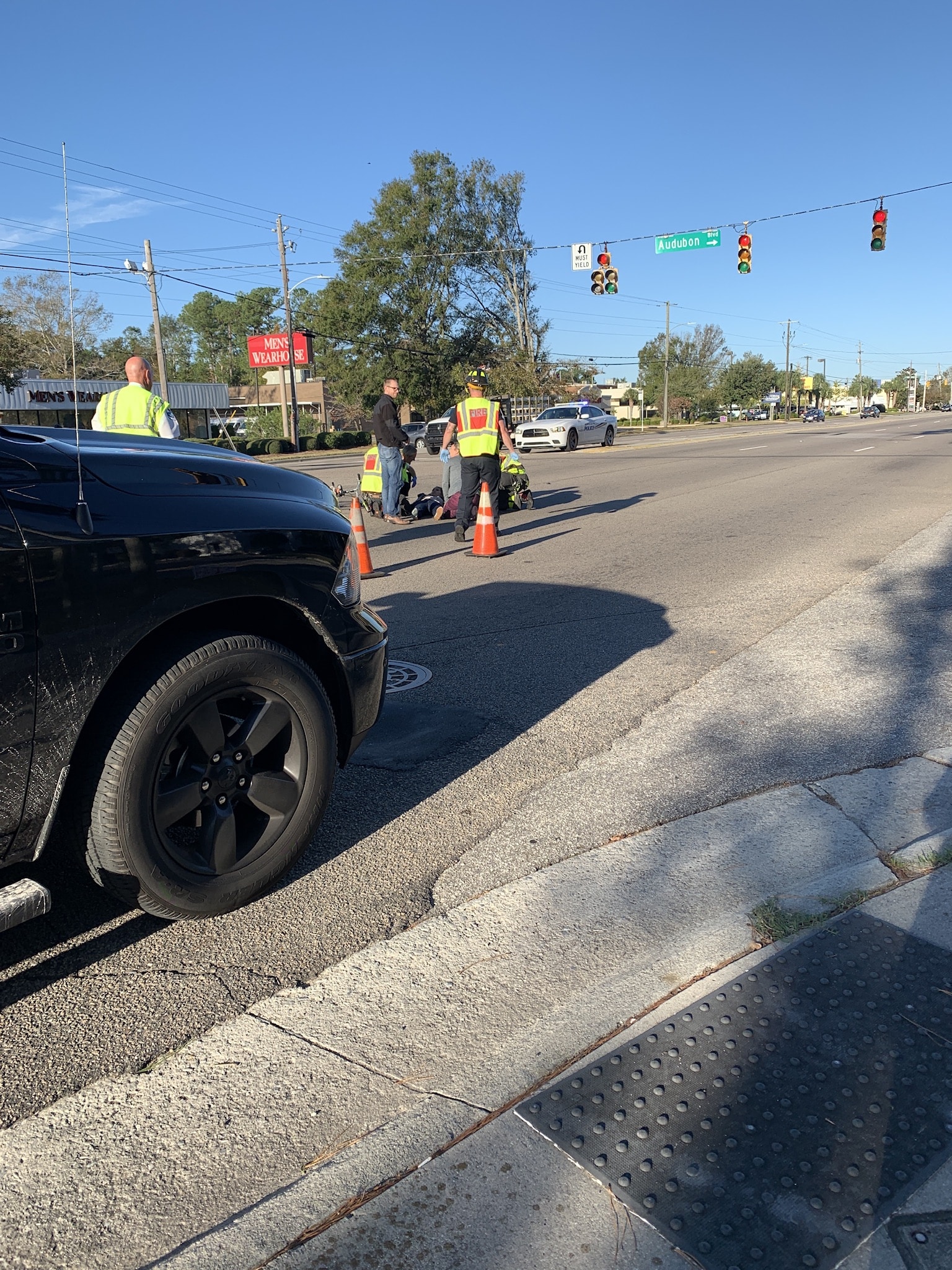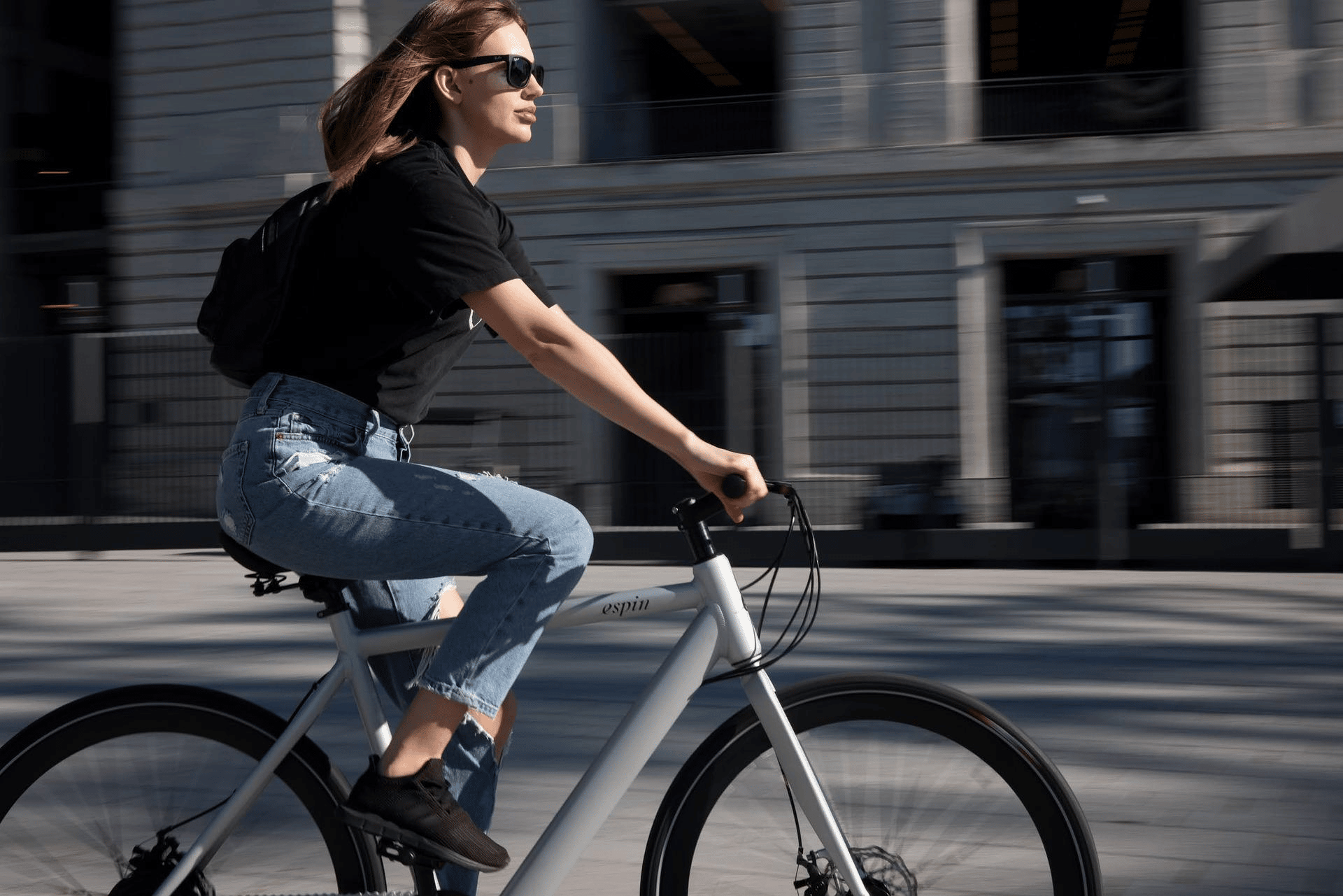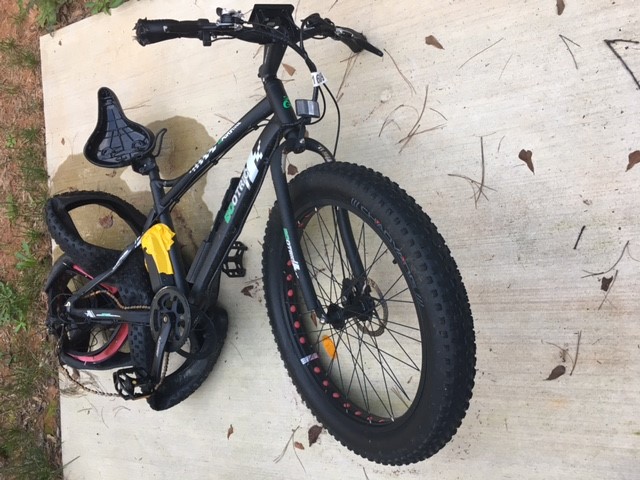Louisiana Legislature previously voted a VRU Law down in 2016 by only 5 votes.
Recently, I was in a spirited discussion about whether Louisiana needs a law to act as a middle ground between serious criminal charges and petty traffic tickets when a bicyclist is hit or killed. Someone asked whether Louisiana law should hold a driver, who didn’t have the “intent” to hurt someone, criminally accountable. This led to the counterpoint that it’s not the intent that matters, but the decision to disregard traffic rules while driving that results in someone else being hurt.
These are all points typically raised when a Vulnerable Road User law is being discussed. I now find myself moderating the discussion of a committee that’s been convened to recommend whether the people of Louisiana would benefit from this type of law.

What’s a VRU law, anyways?
Several Louisiana legislators are considering introducing a Vulnerable Road User (“VRU”) law in the 2020 legislative session. A VRU law is designed to deter drivers from crashing into “vulnerable” people on our streets. This category consists of pedestrians, bicyclists, motorcyclists, highway construction workers, and anyone else not enclosed in a metal cage while using a road, shoulder, or crosswalk. Of course, we’ve received feedback that some motorcycle groups (who would benefit from this law) don’t like calling themselves “vulnerable” because this may admit that, well… Nevertheless, I haven’t run into any bicycling groups unwilling to consider themselves vulnerable. It’s often the opposite and we’re the first to say that we’d like some additional space from overtaking vehicles.
For the proposed VRU law to apply, an offending driver must both break a traffic law and seriously hurt or kill a vulnerable person. The proposed law will likely not require a minimum penalty, but a judge or prosecutor would have the option for: (i) suspending driving privileges; (ii) ordering community service; (iii) assessing a monetary fine; and/or (iv) ordering participation in a driving course related to bicycle crash prevention. Under Louisiana bike laws, offending drivers would also have to appear at a court hearing.
Who’s having this discussion about the VRU law?
Prior to introducing the VRU bill, its sponsors have asked for guidance from the Louisiana State Law Institute. This Institute stays out of the spotlight and acts as an advisory body to the Louisiana Legislature. The Institute recommends necessary changes to modify or eliminate antiquated and inequitable rules of law, and to bring Louisiana’s laws into harmony with modern conditions.
In addition, the Institute conducts special research for the Legislature and its individual members at their request. The Institute’s recommendations result from thorough study and research, and full, free and non-partisan discussion.
At the request of the VRU bill’s legislative sponsors, the Institute has convened a Vulnerable Road User Subcommittee. Our group is comprised of attorneys with opposing viewpoints who all have some interest in this type of law. We meet at the LSU Law Center in Baton Rouge and have been talking through the impacts of such a law, when it should apply, and the specifics of what penalties should accompany a violation. These recommendations will be provided to the Law Institute and then to the Legislature.

How would Louisiana benefit from a VRU Law?
Louisiana wouldn’t be the first state to pass this type of law. Currently, 9 other states have passed a VRU law, including Connecticut, Delaware, Florida, Hawaii, Maine, Oregon, Utah, Vermont, and Washington. In Texas, approximately 28 cities have passed their own VRU laws in the absence of a statewide version.
I recently sat down over lunch with Dan Favre, the Executive Director of Bike Easy in New Orleans, and asked him to share his thoughts on the significance of a VRU law in Louisiana. He responded, “[a]s more and more people are biking, it’s important that we create the physical and social infrastructure to support safety and accessibility on our roadways. The VRU law is a great way to formalize our collective desire to keep each other safe on the roadways – to pay attention, respect, and take care of one another, and especially those who are most vulnerable.” I’m hoping that a proposed VRU law doesn’t encounter too much opposition to Dan’s points.
The Louisiana House of Representatives, when requesting that the Law Institute form the VRU Subcommittee, passed a resolution (2019 HCR No. 47) that recognized the following facts:
- Each day, people in the United States take one-hundred twenty-seven million walking trips and nine million bicycle trips;
- One in twelve households in the United States does not own an automobile;
- Between 2008 and 2017, drivers in the United States struck and killed 49,439 people who were walking on paved roads, which averages approximately 14 people per day, or one person every hour and forty-six minutes;
- In 2015, there were over 1,000 bicycle-related deaths and almost 467,000 bicycle-related injuries; and
- Adults between the ages of fifty and fifty-nine have the highest chance of bicycle-related deaths and children and adolescents have the highest chance of bicycle-related injuries.
If we can acknowledge the obvious, distracted driving has a lot to do with these statistics. People who are on foot or biking are especially at risk of harm from distracted driving. On a daily basis, each of us see people driving around looking at their phones rather than the road. Enforcing an anti-texting law (as opposed to a hands-free law) is incredibly difficult for law enforcement.
Our committee has discussed whether Louisiana is ready for a hands-free cell phone law. Such a law would prohibit people from holding their phones while driving. Currently, it’s illegal to text or access a social media site while driving in Louisiana. Nearly every police officer I’ve spoken to on this topic claims that this law is practically impossible to enforce because the easy excuse is that “I wasn’t texting, I was just: [choosing my next song, looking at my GPS, playing candy crush, updating my phone’s software, etc.].”
A hands-free bill was proposed in the 2019 legislative session, but the session ended before it passed. If Louisiana is not yet ready to pass a hand-free law (I’m sure that drinking and driving was once permissible too?), what else can we do to decrease crash rates of people hit while biking and walking? This is where a VRU bill would fill a void in the law.
I’ve met with law enforcement and prosecutors over the years about what charges may be brought against someone who kills or injures someone walking or riding. The general answer is that no middle ground exists between serious felony charges and minimal traffic tickets. If a driver stays at a crash scene and isn’t intoxicated, I’m not aware of any police officer issuing anything more than a minimal traffic violation such as improper passing or failure to yield. These traffic tickets typically max out with a fine of $25 – $300 and leave affected people feeling like their injuries or losses were essentially worthless.
Crashes that involve drinking while driving or a hit and run have more serious charges attached, such as vehicular homicide. A change in the law isn’t the entire solution, but it certainly starts there. If a law doesn’t exist for a situation, then it obviously can’t be used. Here, a VRU appears to be the answer. Of course, we’ve known this for years and previously supported the passage of a VRU law in Louisiana.
The Louisiana Legislature previously voted a VRU Law down in 2016 by 5 votes.
In 2016, a VRU bill was proposed in the Louisiana Legislature. The bill successfully went as far as it could before ultimately failing. The bill passed through a Senate committee, the full Senate, and a House committee, before the full House voted 51-46 against the bill. Nearly half of Louisiana’s legislators favored the law. The opposition was led by Rep. Kenny Havard, who constantly criticized people on bikes and took positions that contradicted Louisiana’s established laws of traffic. From his comments on the House floor in 2016, it was clear that Rep. Havard had either not understood or not read the proposed bill.
Since 2016, Rep. Havard has exited the Louisiana Legislature and he will not be voting on any VRU law proposed in 2020.
What are the next steps for the proposed VRU law?
Our committee is meeting next on December 17, 2019, in Baton Rouge. We anticipate receiving live input from law enforcement as well as a finalizing our draft of the proposed VRU legislation. We will then present our report and proposed legislation to the Law Institute in January 2020, which will submit our study and recommendation to the Legislature by February 1, 2020.
I’d like to extend a special thanks to our VRU Subcommittee, who is comprised of the following members: Chris Nevils (Winn Parish District Attorney and road cyclist); Calli Boudreaux (medical industry attorney and Baton Rouge triathlete); Jen McLaughlin (asbestos defense attorney and Northshore triathlete), John McLindon (Baton Rouge criminal defense attorney and runner), Dylan Alge (East Baton Rouge Assistant District Attorney), and our Acting Reporter, Hon. Guy Holdridge (1st Circuit Court of Appeals Judge and runner). I also appreciate Jason Seymour, Mark Martin, Jessica Strope, and Larry Reilly attending these Law Institute meetings to provide their input and visibility.
Charlie Thomas serves as the chairperson of the Louisiana State Law Institute’s Vulnerable Road User Subcommittee, as well as the Louisiana attorney for Bike Law. If you’d like to keep up with these developments and hear what we’re else doing at Bike Law, drop me an email at [email protected]. I’ll add you to our update list so that you have the latest information on these issues as they develop further.

Charlie is a bicycle accident lawyer in Louisiana, Texas, and Mississippi and a member of the Bike Law Network.
Having served as the president of the Texas A&M Cycling Team, where he led the team in appearances in the U.S. Collegiate National Championships, Charlie has spent thousands of hours riding his bicycle in Texas.











